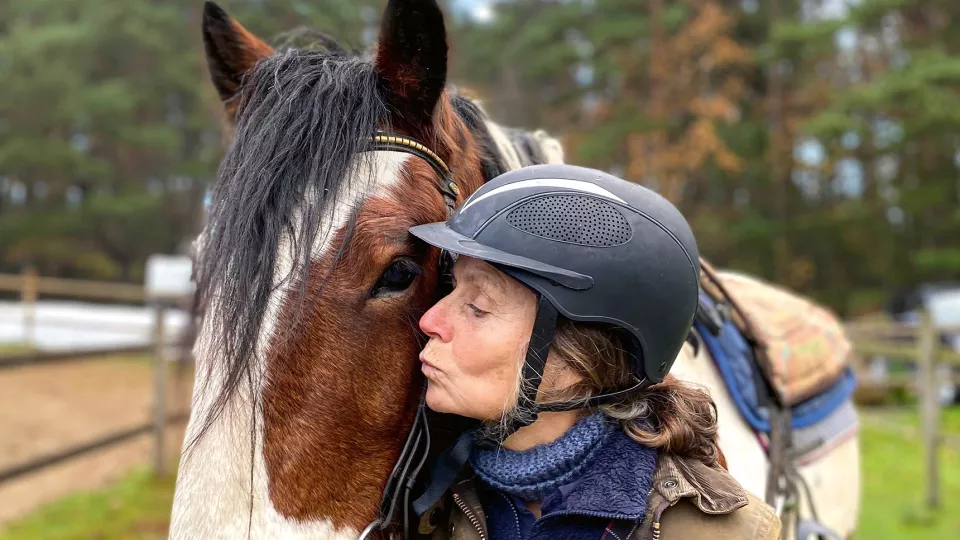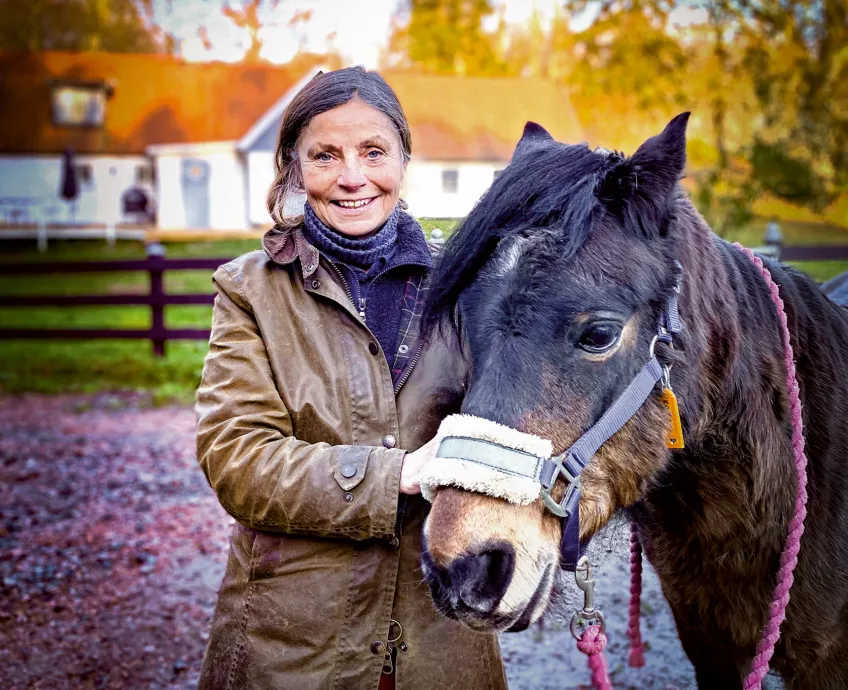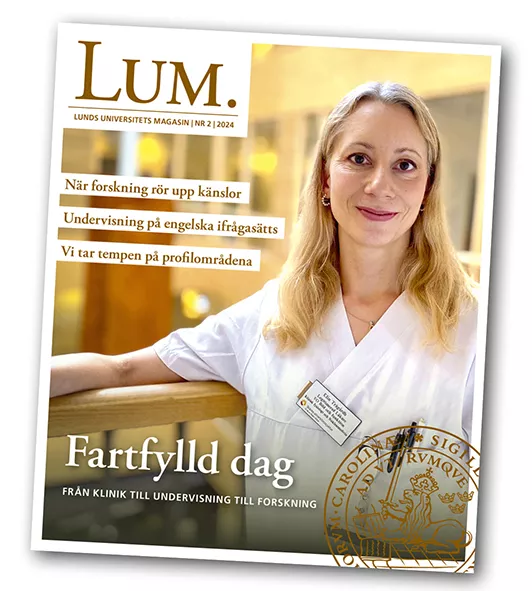It is a sunny autumn day at the Humlamaden rehab centre outside Veberöd, and the stable is full of life and activity. The 32-year-old Shetland pony Brossan is sauntering around the yard doing whatever takes his fancy while the saddle horses are prepared for the morning’s session. Eva Nordmark is standing in one of stalls brushing the worst of the mud off a horse. It is clear that both she and the horse are enjoying the moment. A sign in the gangway of the stable reads “Quiet zone”.
“Everything here is characterised by calm and consideration. The animals set the pace”, she notes.
Life as a researcher changed two years ago
Eva Nordmark’s life changed two years ago. She was in the middle of researching into children with cerebral palsy, which involved a heavy workload and lots of travel. She was also responsible for several doctoral students, and the lack of time meant she neglected both food and sleep. For a long time she noticed vague symptoms such as tiredness, headaches and problems concentrating. She believed the problem was that she needed better lighting, leading her to contact the occupational health service.
“They asked me how I was really feeling, and then it hit me that I was actually not feeling well at all.”
Nordmark was diagnosed with chronic fatigue syndrome, and was also referred to the memory clinic where they gave her various tests and took bloods.
“If you get referred to the memory clinic then you realise that something is obviously not right.”
However, despite the fact that Nordmark already suspected that she was suffering from Alzheimer’s, it was still emotional when she and her family realised that life would never be the same again. After the initial shock, Nordmark was in fact a little relieved despite everything.
“It’s not as if you write a top-ten list of diseases you want to get, but many of my friends have had cancer and I myself believed that my symptoms indicated a brain tumour.”
Loving and meaningful life despite being ill
Throughout her working life, Nordmark has had the opportunity to learn a lot about chronic diseases and how people can live a meaningful and loving life despite being ill – knowledge she is taking with her now she has become a patient herself.
“Of course there are days I feel sad as I think about the future. Even if I feel well now, I realise that my personality will change and that the day will come when I can no longer take care of myself. I will be declared incapacitated and will no longer allowed to take the decisions. In those moments I allow myself to feel sad and shed a few tears.”
Involved in various studies
Research remains important to Eva Nordmark, but now in her role as a patient through which she is involved in various research studies. She thinks Alzheimer’s research should have much greater opportunities than it has today. She is currently on sick leave and waiting to get her sickness pension, but she is not mourning her working life. Instead, she feels she has played her part and has ensured there are people who can take over what she started.
“Of course I miss many of my colleagues, but I have acquired other ‘fellow travellers’ on my journey; both people and animals.
One of the latest “fellow travellers” is Lisa the beagle that Nordmark’s husband bought her when she received her diagnosis. Having a dog means she needs to structure her day and is forced into a routine. Her visits to Humlamaden also help her to keep times and plan her days. She thinks there is a lot of stigma surrounding Alzheimer’s and perceives that many people feel unsure around her – scared that she may have forgotten who they are or may do something strange. For this reason it is important for her to be open about her disease and show that you can have a good life despite having Alzheimer’s.
“I will never recover, but I can live a healthy life by ensuring I recuperate and am strict with myself about how I divide up my activities. As I’ve slowed down the pace, I now enjoy the moment and the environment around me in an entirely different way. I didn’t have time for that before.
"In many ways I have been given a new start"
Nordmark got early treatment for her Alzheimer’s, and with her 64 years belongs to the younger programme at the memory clinic – something she jokingly notes she is rather happy about. The medicines she takes to slow the disease mean she should no longer drink alcohol or drive a car. She personally think it’s rather nice to not have to find a parking space and considers it good training to have to use public transport.
“In many ways I have been given a new start. I’m now doing less things but with a better quality, and my life is much better than before I fell ill.
A life should be lived and it is not certain that a long life is the best one. I believe that dying is wonderful in its own way too, but am grateful for every day I get.”




